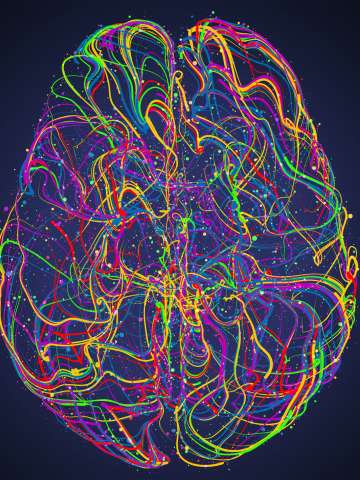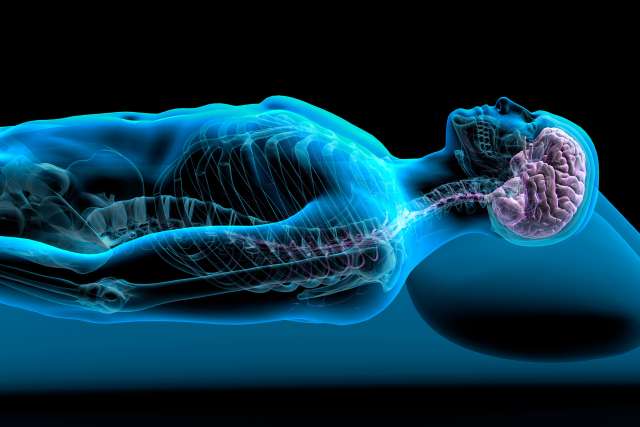Neurotrauma & Neuro Critical Care
Our neurotrauma surgeons offer state-of-the-art surgical treatments for traumatic brain and spinal cord injuries. UCLA Health neurosurgeons consistently rank among the best in the nation.

UCLA Health excellence in neurotrauma care
Our critical care and trauma neurosurgeons offer advanced, lifesaving care for traumatic brain and spinal cord injuries. We consistently rank among the best neurosurgery programs in the nation according to U.S. News & World Report.
Highlights of our program include:
Nationally recognized clinicians: Our neurosurgeons are nationally recognized leaders in their field. Several of our doctors consistently are ranked among the “Best Doctors in America” by the American Health Council. Many of our researchers and scientists are recognized leaders in clinical neuroscience and neurobiology.
Optimized recovery: After surgery, we offer multiple resources to help optimize your recovery. Our state-of-the-art 24-bed neuro intensive care unit (ICU) is led by a neurointensivist, along with neurosurgery and neurology residents and attendings. An elite team of neurology nurses, respiratory technologists, electroencephalography (EEG) technologists and nurse managers provide minute-to-minute care. We offer long-term care as needed through our rehabilitation services team or the Daniel Freeman Rehabilitation Hospital.
Advanced services: We use state-of-the-art neuroimaging options, including brain monitoring technology, in our neuro ICU. Our specialized neuroendovascular suites allow us to provide the latest complex treatments.
Comprehensive subspecialty care: We collaborate closely with subspecialists in neurology, critical care and other areas. This team approach allows us to offer targeted, comprehensive care for traumatic brain injuries and disease.
Our areas of care
Our neurotrauma surgeons work within multiple programs and centers throughout UCLA Health, including:
Brain Injury Program
We provide critical care for patients with all types of traumatic brain injuries, including stroke and spinal cord injuries. Patients in the neuro ICU receive comprehensive care from a multispecialty team led by neurocritical care physicians. Our team of elite specialists uses advanced monitoring tools to provide minute-to-minute, high-quality care.
Edie Baskin Bronson and Richard Skip Bronson CBF Laboratory
The cerebral blood flow (CBF) laboratory is a diagnostic facility at Ronald Reagan UCLA Medical Center. We use advanced tools to assess blood flow in the brain, diagnosing conditions such as aneurysms, narrowed arteries or irregular blood vessel clusters (arteriovenous malformations). The equipment we use is portable, allowing us to offer these services at the bedside in the ICU, emergency department or operating room.
Neurocritical Care Program
The specialists in our Neurocritical Care Program provide comprehensive care to patients with life-threatening neurologic illness. We are a Level 1 traumatic brain injury center with a team of critical care physicians who are available 24/7.
UCLA Steve Tisch BrainSPORT Program
Through this specialty clinic, we treat, research and raise awareness about traumatic brain injury (TBI). Our local concussion specialists treat both children and adults who have a concussion, regardless of whether the concussion is related to a sports injury. We strive to be at the forefront of TBI prevention while increasing our patients’ understanding of overall neurological health.
Brain injuries and conditions we treat
Our neurotrauma surgeons offer treatment for a range of traumatic brain injuries, including:
- Concussion: A type of TBI that can cause headaches, confusion and problems with memory, concentration or coordination, usually occurring after a blow to the head
- Cranial gunshot wound: Any gunshot wound to the head, which almost always requires emergency resuscitation and possible brain surgery
- Post-traumatic seizure: Seizures that occur within one week of a brain injury, affecting about 25% of patients with blood clots inside the brain (intracerebral hematomas)
- Skull fracture: Any break in the cranial bones that cover the brain, occurring after a severe injury to the head
- Subarachnoid hemorrhage: Bleeding in the space between the brain’s surface and the protective tissue covering the brain
- Traumatic hematoma: A blood clot at the surface or inside the brain that requires emergency surgery
- Acute or chronic subdural hematoma: Occurs just beneath the brain’s surface tissue
- Epidural hematoma: Occurs above the brain’s surface tissue
- Intracerebral hematoma: Occurs inside the brain
We also treat diseases and disorders such as:
- Coma: Unconsciousness arising from a critical neurologic condition or injury
- Encephalitis: Brain inflammation, often caused by an infection or autoimmune condition
- Intracerebral hemorrhage: A sudden leaking of blood into the brain tissue
- Guillain-Barré syndrome: A rare autoimmune condition that attacks the nerves, which can cause muscle weakness, tingling and, in extreme cases, paralysis
- Myasthenia gravis: An autoimmune disease in which the signals between nerves and muscles break down, requiring emergency treatment if it seriously affects swallowing or breathing muscles
- Seizures: Sudden, uncontrolled electrical activity in the brain, causing atypical sensations or behaviors and possible loss of consciousness
- Spinal cord trauma: Any direct injury that damages the spinal cord or nerves in the spinal canal
- Status epilepticus: A medical emergency occurring when a person has a seizure lasting longer than five minutes or more than one seizure in a five-minute period
- Stroke: A medical emergency in which blood flow to the brain is interrupted
Treatments and tests neurotrauma surgeons offer
Our neurotrauma surgeons use a variety of state-of-the-art brain monitoring tools and surgical treatments.
Brain monitoring
Advanced brain monitoring tools allow our specialists to assess various types of brain activity. Test we use may include:
- Cerebral microdialysis: Uses a thin, hollow tube (catheter) connected to the brain to evaluate certain brain chemicals
- Electroencephalography (EEG): Measures brainwave activity, including continuous EEG monitoring pioneered at UCLA Health
- Evoked potentials: Measures the brain’s electrical activity in response to specific stimuli, such as lights, sounds or sensations
- Intracranial pressure monitoring: Measures the pressure inside the skull to determine if high or low cerebrospinal fluid (CSF) is causing neurological symptoms
- Transcranial Doppler ultrasound: Uses soundwaves to assess how blood flows through the brain
Neurotrauma surgeries
Depending on your diagnosis, our neurotrauma surgeons may perform:
- Cranioplasty: Neurosurgeons repair bone defects in the skull. These defects usually arise from a traumatic injury or previous surgery.
- CSF leak repair: We may inject a small amount of the patient’s own blood or blood components into the spinal canal to repair a CSF leak. Sometimes, we use a duraplasty, a procedure to repair the outer covering of the brain (dura).
- Decompressive craniectomy: We remove a small piece of the skull temporarily to allow the brain room to swell and then heal.
- Intraoperative CT-guided endoscopic surgery: Surgeons use a catheter (thin, flexible tube) to deliver a clot-busting medicine and stop brain bleeding.
- Stereotactic surgery: We use highly focused radiation beams to shrink or destroy tumors or treat other brain problems such as bleeding.
Our expert team
Our neurotrauma surgeons offer advanced critical care for a range of brain and spinal cord injuries. We use state-of-the-art tools that offer patients the best chance for a positive outcome. Our neurosurgeons are nationally recognized leaders in treatment and research of brain and spinal cord injuries.
Contact us
Call 310-825-2631 to learn more about neurotrauma care at UCLA Health.
Find your care
Our neurotrauma surgeons offer advanced, lifesaving care. Call 310-825-5111 to learn more about neurotrauma and critical care services.
